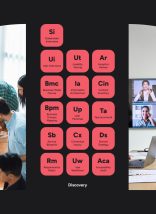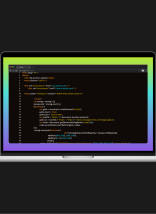Umbraco is an open-source CMS running on the .NET framework. It has been and remains the front runner for a .NET CMS.
Umbraco is the ideal solution for highly customized and unique applications. This is an enterprise solution that leaves you open to endless possibilities. For example, access some of the highest tier plugins and software packages available for .NET.
- It’s free to use. While the open-source platform is free, your .NET team may require you purchase some plugins to facilitate development.
Work in a simple UI. Creating and building pages in Umbraco was designed to be intuitive. Minimal training is needed to get users familiar with entering content in the CMS, and no HTML experience is needed.
You have multiple options for building content. Choose from the following editing experiences with content layouts:
- Grid layouts: This option is for maximum freedom. A Row/Column builder that lets you freely enter content or insert custom components in basically any configuration.
- Band system or component picker: Select various components to put together pages.
- Strict property entry: Don’t worry about layout – simply enter content into fields on pre-styled pages.
Rely on a robust hosting option. Umbraco can handle the hosting of large content bases, including many pages and catalogs of content. It can be self-hosted on windows servers, or you may use Umbraco’s own cloud hosting. Hosting is built with load balancing at its core, perfect for multi server load balanacing.
It’s easy for developers to use. Umbraco makes it easy for developers to set up and manage page types, templates, content, and plugins. This saves money on development time and maintenance (with a cleaner code base).
- Upgrades are simple. Umbraco has recently focused on improving upgrades. Most are automated, and others have instructions for manual changes.
- Umbraco includes vast functionality and community support:
- Multi-user and role support
- Simple multilingual management
- Easy-to-use form builders
- Powerful search based on the lucene framework
- Content migration features
- Open source and well documented API
- Large, active development community provides support
When should I use Umbraco?
Umbraco is a robust base for advanced applications. It’s a great option if you can take advantage of enterprise-level software development tools and frameworks in your business model. Here are some other scenarios where you would benefit from Umbraco.
You have access to .NET resources.
The most obvious reason to use Umbraco is if you have a .NET team available. Or maybe you already have an existing .NET application, and you wish to retain some of the existing code base.
Umbraco works like a standard .NET project, so any existing .NET libraries are easily imported.
Multilingual support is a requirement.
Managing multiple languages is easy with Umbraco. It includes a simple multilingual UI with translation capabilities.
Users and roles have complex definitions.
If your project needs multiple admin roles to manage content, then Umbraco might be the best option for you. That’s because users and roles can be setup for very granular access to pages and features.
The application requires a functionally that only works with Windows.
For example, you may prefer to use Active Directory for authentication, which is a proprietary windows-based software.
When should I not use Umbraco?
The website has a simple purpose.
A simple brochure website with no expectation for expanding doesn’t need a robust option. Umbraco would likely be overkill.
Hosting cost is a concern.
While development cost with Umbraco should be similar to other CMS frameworks, hosting costs will be much higher.
Advanced eCommerce is the primary focus.
Building an eCommerce site with Umbraco is possible, but it’s not as simple as other platforms. For example, you would have to custom code an integration into a checkout process whereas other platforms have standard eCommerce features built in.
There are rare occassions where Umbraco is necessary for eCommerce. At Atlantic BT, we have worked with an eLearning company that had a unique course checkout process. Purchasing a course requires entering student information which gets passed to a custom enrollment processor. Students can also use a prepaid method, where they would enter a business name instead of a credit card.
In general, these out-of-the-ordinary custom features are best developed in .NET.
A team experienced in many platforms can guide you.
Need help evaluating your situation and choosing the best platform? Reach out for a free consultation with one of our experts. We’re happy to help you get started with your solution.







